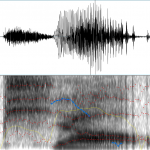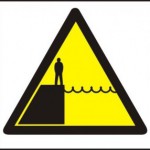Articles in the ‘Attitude and mentality’ category Page 9
-
Study more Chinese: Time boxing vs. micro goals
Time boxing and micro goals are both excellent strategies for getting things done, but which one is most suitable for learning Chinese? In this article, I discuss the pros and cons with the two methods and how that relates to learning Chinese. The short answer is that I use both a lot, but in different situations.
Read → -
How long have you studied Chinese?
How long have you studied Chinese? Two years? Three thousand hours? Even though most people don’t expect an answer in hours, there are several reasons we should really count our learning time in hours. It’s the time we spend learning Chinese that matters, not when we moved to China or started learning Chinese.
Read → -
How to reach a decent level of Chinese in 100 days
Scott Young has written a lot about how to learn more efficiently and this year he has turned his focus entirely on languages. He spent three months in China and managed to reach a very decent level of Chinese in that time, including passing HSK4. In this article, he shares his experience and the strategies he used. The article also contains two video interviews, one with John Pasden (Sinosplice) and one with me.
Read → -
How to find out how good your Chinese pronunciation really is
Evaluating pronunciation needn’t be hard, but many methods commonly used by teachers are deeply flawed, resulting in inaccurate error analysis. If we want to improve, we need to be clear about what we need to improve first. This article looks at some problems with commonly used methods to evaluate pronunciation and suggests some alternatives.
Read → -
How to Approach Chinese Grammar
In this article John Pasden discusses how to approach Chinese grammar as a foreigner, starting by debunking a few myths and then going on to how to actually learn grammar. Chinese is a language where you can very far with just a few basic concepts and patterns, so make the most of what you learn and try to use it immediately. Then extend your knowledge gradually and return to old patterns for a more detailed look later when you actually need to. Grammar learning should be driven by an actual need for better ways of expressing yourself or understanding what people say to you!
Read → -
Asking the experts: How to learn Chinese grammar
How should we learn Chinese grammar? This article collects the best answers from more than 15 experts and experienced learners.
Read → -
Learning how to fish: Or, why it’s essential to know how to learn
Learning how to learn Chinese is an essential skill for any student, regardless if you study on your own or in a course. This article explains why going to class is not enough.
Read → -
Chinese immersion with Carl Gene Fordham
It’s widely known that immersion is an effective way of learning languages, but the details are less clear. How do you go about it? This article contains an interview with Carl Gene Fordham, who has many interesting things to say about how he learnt Chinese to an advanced level, as well as how we continued from there and became a translator and interpreter.
Read → -
Asking the experts: How to bridge the gap to real Chinese
Many students of Chinese think that it’s hard to bridge the gap from textbook Chinese to the Chinese used by native speakers in the real world. This article contains useful insights and hands-on advice from more than 20 language learners and teachers. The overall message is encouraging: the gap can certainly be bridged, you just need the right attitude and the right method!
Read → -
Preparing for rainy days and dealing with slumps
We all experience slumps in our learning, but there are many things we can do to reduce the negative effects of these slumps. The solution is three-fold: Preparing for the slump before it hits you, finding learning activities that don’t feel like work and paying attention to what you feel capable of at the moment. You will still experience slumps, but hopefully they will be less severe!
Read →









